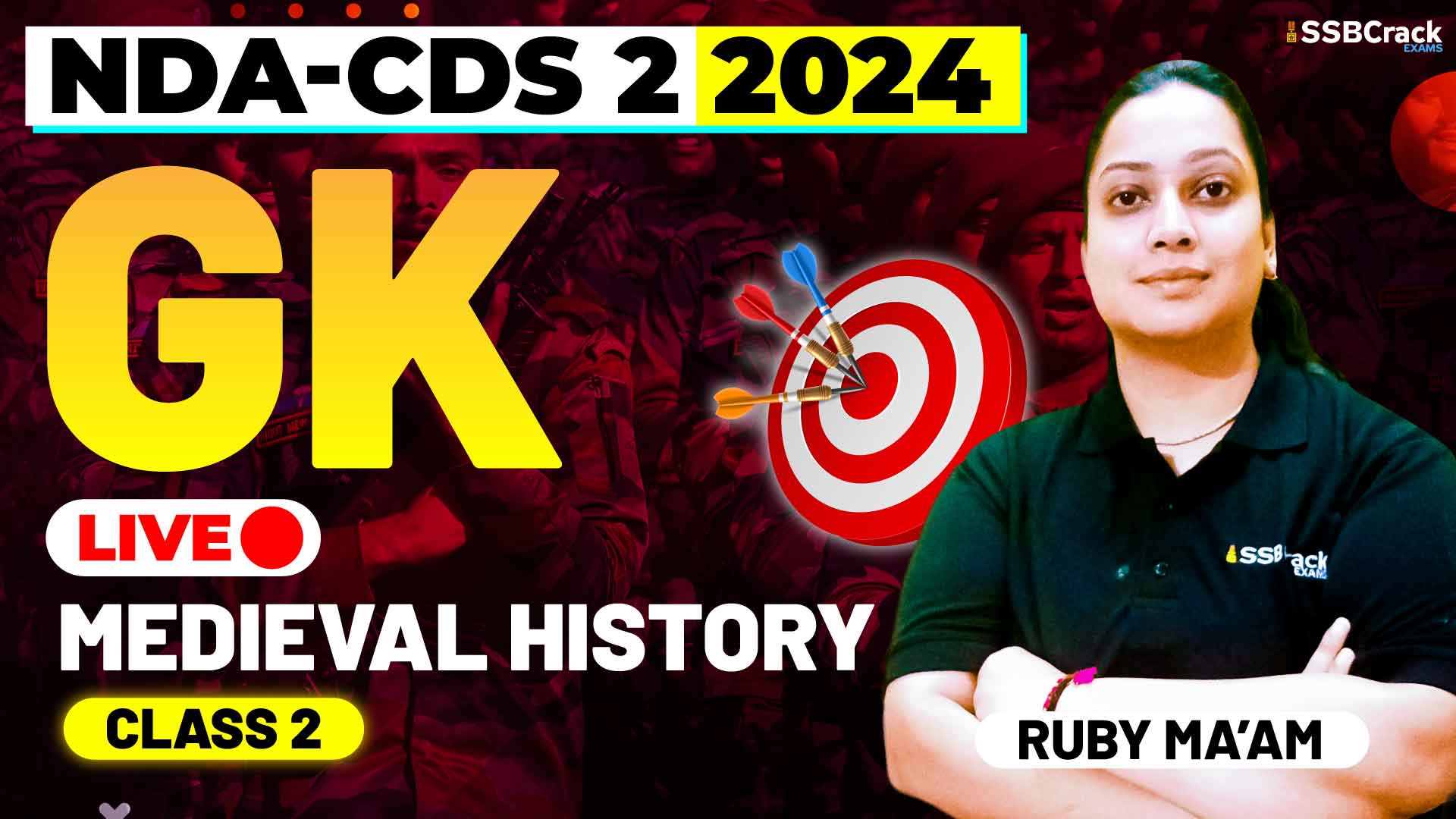Aspiring to join the National Defence Academy (NDA) or the Combined Defence Services (CDS) is a prestigious and challenging endeavor. One of the critical components of the written examination for both NDA and CDS is the General Knowledge section, which includes questions on Indian history. Among the various periods of Indian history, Medieval India holds significant importance. Here’s why understanding this era is crucial for aspirants:
1. Comprehensive Understanding of Indian History
Medieval India spans from the 8th to the 18th century, covering a vast period that witnessed the rise and fall of several dynasties and empires. This era is marked by significant political, social, cultural, and economic changes that shaped the course of Indian history. Understanding Medieval India provides a comprehensive view of the evolution of Indian society, governance, and culture.
2. Key Dynasties and Empires
Medieval India was dominated by various powerful dynasties and empires such as the Cholas, Rajputs, Delhi Sultanate, and the Mughal Empire. Each of these played a crucial role in shaping Indian polity and culture. For instance:
- The Delhi Sultanate introduced administrative reforms and Persian culture.
- The Mughal Empire is renowned for its contributions to art, architecture, and centralized administration.
Knowledge of these dynasties helps aspirants understand the foundations of modern Indian society and governance.
3. Military History and Strategies
Medieval India is rich in military history, with numerous battles and conflicts that are still studied for their strategic and tactical brilliance. The Battle of Tarain, the conquests of Alauddin Khilji, and the Mughal campaigns provide insights into medieval warfare, fortifications, and military strategies. Understanding these can be particularly beneficial for defence aspirants, as it enhances their knowledge of military tactics and leadership.
4. Cultural and Architectural Heritage
The medieval period witnessed a flourishing of culture and architecture, with the construction of iconic structures like the Qutub Minar, Taj Mahal, and various forts and palaces. These monuments are not only architectural marvels but also reflect the cultural and religious diversity of India. Knowledge of this heritage is essential for developing a well-rounded understanding of India’s rich cultural legacy.
5. Economic and Social Developments
The medieval period saw significant developments in trade, commerce, and agriculture. The establishment of trade routes, the introduction of new crops, and advancements in irrigation played a crucial role in the economic prosperity of the era. Understanding these aspects helps aspirants grasp the economic foundations and social structures that influenced later periods.
6. Preparation for Competitive Exams
Questions related to Medieval India are frequently asked in the NDA and CDS exams. These questions can range from identifying key figures and events to understanding the socio-economic and cultural developments of the time. A thorough understanding of Medieval India can significantly boost an aspirant’s score in the history section of the exam.
Tips for Studying Medieval India
- Structured Study Plan: Break down the period into smaller sections, focusing on different dynasties, their contributions, and significant events.
- Use of Timelines: Create timelines to understand the chronological order of events and the rise and fall of different empires.
- Reference Books: Use standard reference books like “Medieval India” by Satish Chandra and NCERT textbooks for accurate and comprehensive information.
- Revision: Regularly revise key points, dates, and figures to retain important information.
- Practice Questions: Solve previous years’ question papers and take mock tests to gauge your understanding and improve your performance.
In conclusion, a strong grasp of Medieval Indian history is indispensable for NDA and CDS aspirants. It not only enhances your knowledge for the exams but also enriches your understanding of India’s diverse and intricate past. By delving into this fascinating era, you equip yourself with the historical insights and analytical skills needed to excel in your journey towards a distinguished career in the Indian Armed Forces.







